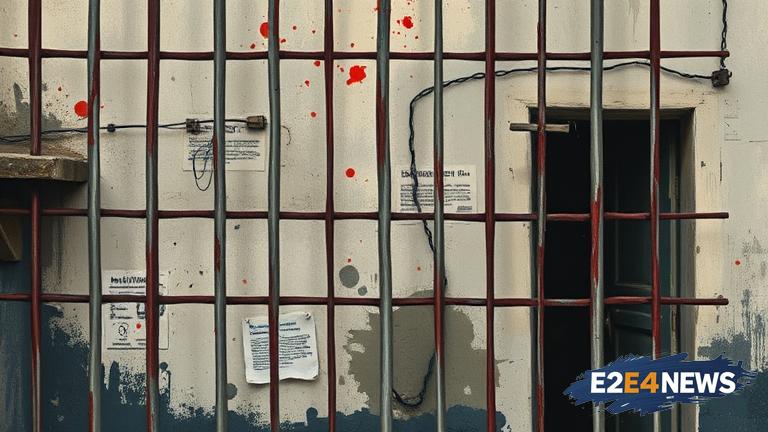The plight of Palestinian prisoners in Israeli jails has been a longstanding issue, with many facing harsh conditions, including medical neglect, solitary confinement, and limited access to basic necessities. Despite international condemnation, the situation remains dire, with prisoners often subjected to physical and psychological abuse. The Israeli authorities have been accused of violating international law and ignoring the basic human rights of the prisoners. The prisoners, many of whom are being held without charge or trial, are often denied access to medical care, leading to a deterioration in their health. Some prisoners have even been forced to undergo surgery without proper medical supervision, resulting in serious complications. The use of solitary confinement is also widespread, with prisoners often being held in isolation for extended periods. This has led to a significant decline in the mental health of the prisoners, with many experiencing depression, anxiety, and other psychological disorders. The prisoners are also often denied access to education and recreational activities, making it difficult for them to maintain a sense of purpose and dignity. The international community has been criticized for its failure to take decisive action to address the situation, with many calling for greater pressure to be placed on the Israeli authorities to improve the conditions in the jails. The Palestinian Authority has also been accused of not doing enough to support the prisoners, with some critics arguing that more needs to be done to raise awareness about the issue and to provide support to the prisoners and their families. Despite the challenges, the prisoners remain defiant, with many continuing to resist their imprisonment through hunger strikes and other forms of protest. The issue of Palestinian prisoners in Israeli jails is a complex and deeply emotive one, with many regarding it as a symbol of the broader struggle for Palestinian freedom and self-determination. The situation is further complicated by the fact that many of the prisoners are being held without charge or trial, making it difficult to determine their guilt or innocence. The Israeli authorities have argued that the prisoners pose a security threat, but many critics argue that this is a pretext for suppressing Palestinian dissent and maintaining control over the occupied territories. The prisoners and their families have called for international intervention, including the imposition of sanctions on Israel and the provision of support to the Palestinian people. The United Nations has also been criticized for its failure to take decisive action, with many arguing that more needs to be done to hold Israel accountable for its actions. The situation is a stark reminder of the ongoing occupation and the need for a just and lasting resolution to the conflict. The prisoners’ struggle is a testament to the resilience and determination of the Palestinian people, who continue to resist their oppression despite the overwhelming odds against them. As the situation continues to deteriorate, it is imperative that the international community takes action to address the plight of the prisoners and to support the Palestinian people in their struggle for freedom and self-determination. The use of administrative detention, which allows prisoners to be held without charge or trial, has been widely criticized as a violation of international law. The prisoners have also been subjected to torture and other forms of ill-treatment, including physical and psychological abuse. The situation is a stark reminder of the need for a just and lasting resolution to the conflict, one that recognizes the rights and dignity of the Palestinian people. The prisoners’ struggle is a powerful symbol of the broader struggle for Palestinian freedom and self-determination, and it is imperative that the international community takes action to support them.
